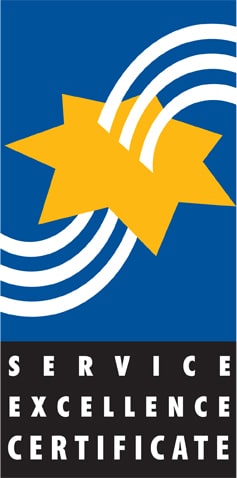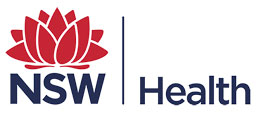The “Walking the Talk – designing youth advocacy with young people” project is a collaboration between The Association for the Wellbeing of Children in Healthcare (AWCH), Health Consumers NSW (HCNSW) and young people.
The main objectives of Walking the Talk in 2022 were to:
- Engage with a diverse group of young people, creating and fostering a welcoming and safe space to share experiences, ideas, opinions, and thoughts
- Listen to young people’s experiences with the healthcare system and health engagement
- Collaborate with young people to identify ideas and solutions to address the issues brought up through these experiences
- Identify and discuss young people’s experiences with regard to COVID-19, identifying issues, themes, and examples of resilience
- Develop a Youth Engagement Strategy for AWCH & HCNSW based on the findings of the engagement process
This project included the creation of a White Paper, through which a substantial need was identified for engaging with young people more effectively and co-designing engagement strategies, processes and priorities with them. This need is particularly salient within engagement with young people belonging to marginalised groups such as culturally and linguistically diverse communities. Walking the Talk aims to begin to address this gap, laying a foundation for future youth engagement and health advocacy.
The work done by Walking the Talk in 2022 will continue into 2023 and beyond.
See Walking the Talk's Documents here:
"Too Young": An Exploration of Youth Ageism in the Healthcare System
Young people face a myriad of barriers when it comes to accessing, navigating, and engaging with the healthcare system, however there is very little research regarding age discrimination or ageism towards young people and the effect this has on young people’s experiences in the healthcare system. The purpose of this project, was to explore the impacts of age and ageism, on young people’s experiences within the healthcare system.
Initially, an extensive literature review was undertaken looking at ageism and young people and the findings summarised in the “Too Young”: An Exploration of Youth Ageism Report.
Unsurprisingly, there has been very little research looking at the issue of youth ageism and so an online survey was developed to gain an understanding of general attitudes and opinions of young people with regard to ageism, both in general society and within the healthcare system. Respondents also answered an open-response question at the end of the survey to give them an opportunity to share their experiences further. There were 61 participants in the survey aged 12-24 and the key themes presented include:
“Too Young”– One of the most significant themes was the notion of young people being deemed “too young” to be experiencing certain issues, to understand their health, and to understand what they need.
Misdiagnosis & Missed Diagnosis – Several respondents indicated significant delays in treatment and diagnosis of various illnesses and issues due to being “too young” to be experiencing such symptoms and issues.
Age Stereotyping & Accusations – Several young people reported being accused of lying by healthcare professionals. Types of accusations included those of drug seeking and lying about symptoms or conditions in order to avoid school attendance.
Explicit Denial of Care – Several respondents indicated having explicitly asked for investigation of symptoms and for access to particular treatments and supports and being outright denied by their healthcare providers.
The Cost of Healthcare in Ageism – Multiple respondents reported financial impacts of healthcare and how this affected their healthcare experiences.
The survey shows that ageism is prevalent towards young people in healthcare, and an issue that requires more attention and future research. It also indicates the significant impacts of substandard practice on young people’s health, trust in the healthcare system, and personal relationships. Not only does mistreatment and dismissal lead to delays in diagnosis or misdiagnosis, the mental health, financial and emotional costs are also high.
Recommendations from the report includes:
Future Research – Future areas of research should include the intersection of ageism, sexism, and LGBTOI+ identity and its impact on healthcare access, engagement and navigation among young people.
Organisational Involvement – The exploration of ageism experiences among young people provided in this survey indicate a need for increased advocacy for young people’s rights in healthcare, as well as increased understanding of young people’s needs among healthcare providers.
Collaboration and Codesign – Participation of young people in codesign of services, models and frameworks is necessary to ensure inclusivity and effectiveness.
System Overhaul – In order to begin addressing the negative experiences of young people within the healthcare system, we must address the structures that constrain the accessibility of services.
The experiences shared through this survey show that many young people experience ageism when engaging with the healthcare system, and, when given the opportunity, are eager to discuss such issues. Young people face many barriers to: access, navigation, and ongoing engagement with the healthcare system, and, throughout this project, it is clear that ageism plays a role in this and requires more research and action.
To read the full report, please follow the link below:
Too Young An Exploration of Youth Ageism Report
AWCH Ward Grandparent Program Evaluation
We are currently evaluating the AWCH Ward Grandparent Program that runs in 13 NSW hospitals. The focus of this evaluation, is to look at what is working well and what can be improved and built on for the future.
So far, we have conducted surveys, focus groups and interviews with; AWCH Ward Grandparents, AWCH Ward Grandparent Co-ordinators, members of the AWCH Board and a small number of families who have used the service.
Once all this information is collated and analysed, we will be sharing it with the team of; AWCH WGPs, AWCH WGP Coordinators and the AWCH staff and Board to make recommendations that will support and grow this outstanding program in the future.
Engaging with Children and Young People in the Healthcare System
We are conducting a project to look at current engagement models and activities with children and young people in the healthcare sector.
This project will identify best practice in child and youth engagement, as well as gaps in what is currently conducted across the system. The findings of this project will help us develop a child and young people’s engagement strategy for AWCH.
This strategy will guide the advocacy work of AWCH in the future, as well as support health organisations to effectively engage, partner and empower; children, young people and their families, to have a greater say in their healthcare as well as contributing to improving the healthcare system overall.
Advocating for the Wellbeing of Children and Young People through Social Media
We are currently reviewing our social media strategy and activity to better advocate for the wellbeing of children and young people in healthcare.
Reducing Radiation Exposure to Children and Young People from CT scans
In 2014-2015, the Australian Commission on Safety and Quality in Health Care partnered with AWCH and NPS MedicineWise to develop a brochure to answer questions parents have about CT scans. A companion poster was also developed for display in doctors’ practices, medical imaging services and early child health services.
In partnership with the Australian Dental Association and other dental organisations, a brochure for parents and carers and a companion poster on dental x-rays was also developed.
These brochures are available at the Health Direct website and Australian Commission on Safety and Quality in Health Care website


